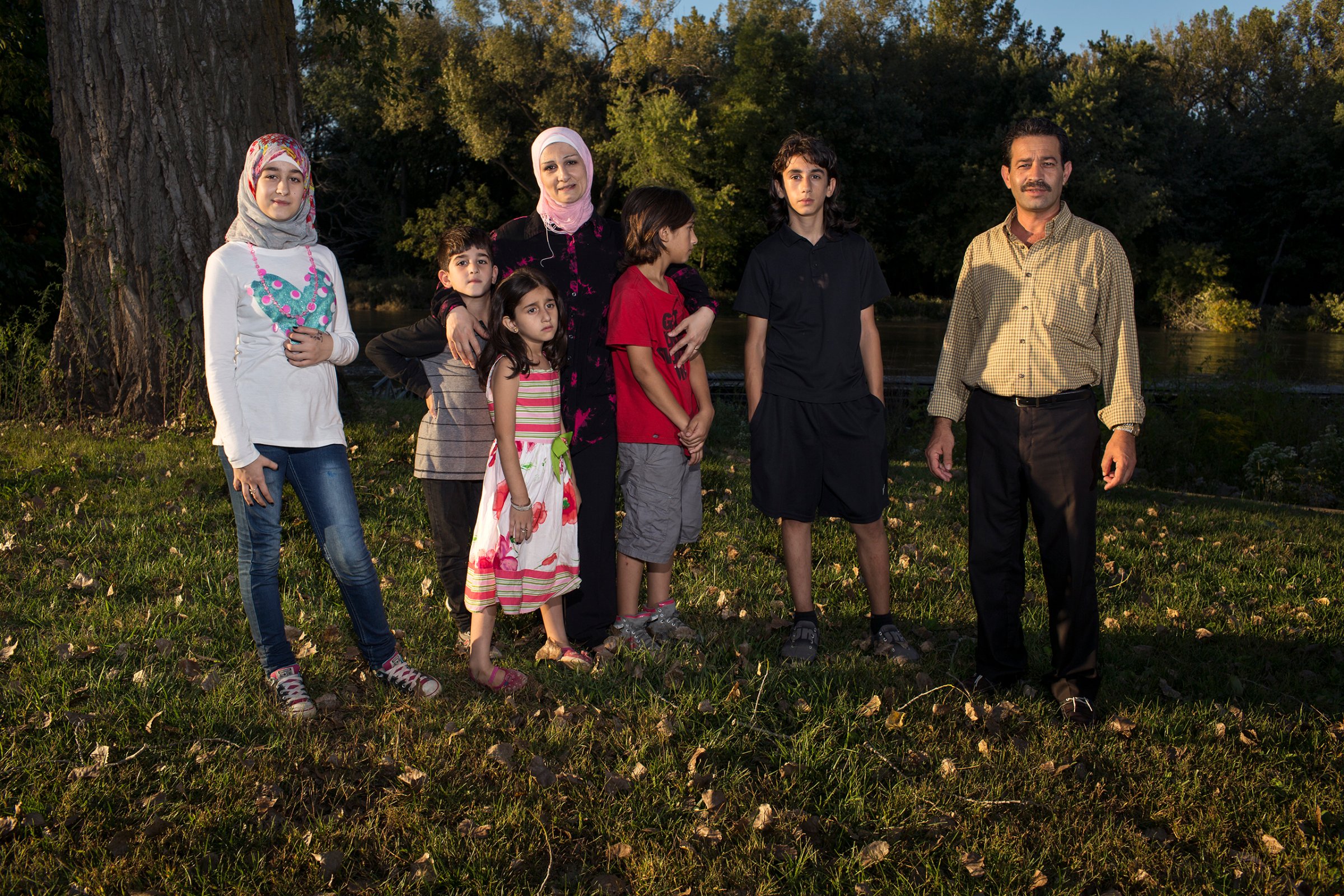
The debate about President Biden’s recent decision to enact a big increase in the number of refugees allowed into America, has been proceeding from a false premise. Rebuilding the refugee resettlement program is not a problem for Biden to solve. It is an opportunity for the U.S. to seize.
For that to happen, the country needs more than a signature of a Presidential Determination. Successful social change depends on public engagement as well as policy smarts. There are lessons here for other parts of the immigration debate.
The U.S. refugee resettlement program is one part of the immigration system that works well and serves as a model for other countries. The program, established in 1980 and vigorously supported by Republican and Democratic presidents, is a planned, organized, documented, successful public-private partnership between the federal government, NGOs and local communities. It has delivered results not just for refugees but for America.
In the four decades of the program, the U.S. has safely resettled more than three million of the world’s most vulnerable refugees with an average annual cap set at 95,000 prior to the Trump administration. U.S. government agencies, including the FBI, Department of Homeland Security, National Counterterrorism Center and Department of Defense lead an intensive vetting process that includes background checks, biometrics collection, and medical screenings. Refugees who are resettled in the U.S. are the most thoroughly vetted population that enters this country, often spending up to 36 months waiting for approval to board their flights.
The program was also bipartisan until 2016. President Ronald Reagan welcomed nearly 500,000 refugees from Asia alone during his eight years in office. Even amid the baseless attacks on refugee families by President Trump, 43 governors, including 19 Republicans, from across the nation came forward in support of refugee resettlement.
Providing refuge is wise as well as compassionate. Head and heart go together.
The COVID-19 pandemic has shown how refugees play a disproportionate role as frontline healthcare and essential workers. Healthcare is the second most common field of employment for refugees, with 16 percent of all refugees helping keep this country healthy.
Another 175,000 refugees keep this country fed by working on farms, in butcher shops, in food manufacturing, and in restaurants. As these new Americans become integrated into the country, they contribute far more than they receive economically.
An unpublished 2017 report by the Department of Health and Human Services found that refugees contributed $63 billion in revenue over the past decade. Similar studies found that entrepreneurship rates among refugees is nearly 50 percent higher than among the U.S.-born population, refugees pay on average $21,000 more in taxes than they receive, and refugee employees have a turnover rate 7-15 percent lower than the overall workforce.
Alongside his announcement that the U.S. would allow up to 62,500 of the world’s most vulnerable refugees to be resettled this fiscal year, and that his Administration would aim to admit 125,000 refugees in fiscal year 2022, the President explained that progress would take time, as the infrastructure of successful resettlement is rebuilt after the Trump years.
There is room here to build back different as well as better. For example, the U.S. should expand the use of community, family, and co-sponsorship models of resettlement. By building on the existing public-private partnership model, community sponsorship will expand the number of refugee families that can safely resettle, build community buy-in towards the program, and improve the welcome and integration offered to these families when they arrive in their new communities.
There is also evidence from the International Rescue Committee’s partnership with the Stanford Immigration Lab that the economic self-sufficiency of resettled refugees could be improved by 40% using an algorithm to match refugees’ backgrounds with employment needs across the United States.
A rebuilt refugee resettlement program should become an American export. Less than 1 percent of refugees are resettled each year, and even that figure has been hampered by the global pandemic. It is not just the U.S. that has been a laggard. Despite recent progress on scaling up resettlement to Europe pre-Covid, less than 10,000 refugees were resettled in Europe last year and not a single member state met its resettlement pledge in 2020. Demonstrating to the world what a confident, well-resourced, effective resettlement program looks like is a critical pathway to reasserting America’s role as a global leader.
No one pretends resettlement is the solution to the global refugee crisis. Most refugees do not resettle to high-income countries like the U.S. or the U.K. The vast majority are displaced to neighboring states, low- and middle-income countries like Jordan, Kenya, Bangladesh, and Colombia. These countries need our support, politically, economically, and diplomatically. Resettlement and humanitarian aid are not substitutes for one another. They are complements. Resettlement helps the most vulnerable. Aid helps the majority.
The spirit of refuge and welcoming has always been essential to the idea of America. This is a nation of immigrants, and welcoming refugees from religious minorities to the Vietnamese in the 1970s to Eastern Europeans persecuted for their political beliefs has always been essential to that spirit. Biden’s decision to rebuild the resettlement program reaffirms that idea of America.
More Must-Reads From TIME
- The 100 Most Influential People of 2024
- How Far Trump Would Go
- Scenes From Pro-Palestinian Encampments Across U.S. Universities
- Saving Seconds Is Better Than Hours
- Why Your Breakfast Should Start with a Vegetable
- 6 Compliments That Land Every Time
- Welcome to the Golden Age of Ryan Gosling
- Want Weekly Recs on What to Watch, Read, and More? Sign Up for Worth Your Time
Contact us at letters@time.com